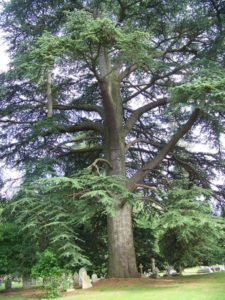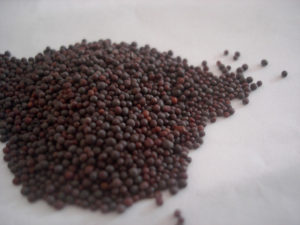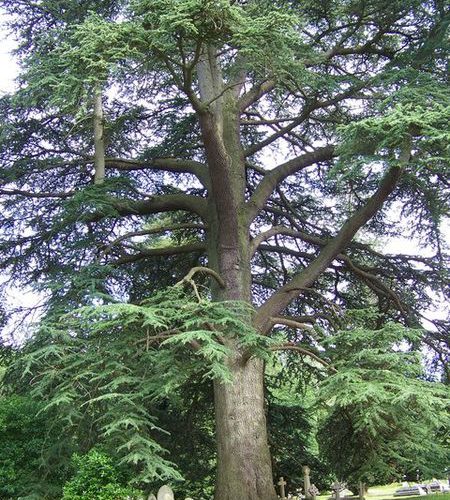Growing Like a Weed

The timing of this Sunday’s readings, at least in this part of the world, is quite appropriate, since the overarching theme is about remarkable growth. Many of us are growing gardens and perhaps marvelling at the rate of growth. This marvelling might even cause us to thank God. Those responsible for cutting the grass and keeping the lawn looking nice might have different sentiments regarding the rate of growth. Some of us may have also seen on social media people posting pictures of their children as a ‘before and after’, comparing the picture from the first day of school and now on their last day of school. The change and growth that can take place in one school year is really astonishing. It might cause parents to have a moment of appreciation for how precious the time is that they have with their children.
Remarking at these experiences is in many ways a reminder of God’s grace. These are just some of the many ways we can be reminded of God’s constant presence, and how God’s grace nourishes and sustains us at every moment of every day. Jesus mentions a person sowing seeds. The very experiences just mentioned are like scattered seeds that help to germinate in our consciousness a mindfulness of God’s active presence in the world. The Greek Church Fathers would refer to the λόγος σπερματικός (logos spermatikos), the seeds of reason, or the seeds of the Word; the ways in which God speaks to us and is present in everything around us. Scattered all around us, if we pay attention, are signs of an ordered creation, through which God communicates and teaches. God became human in Jesus to teach us how to be human, but even before that, the Son, the Word, the Logos, created the universe and the world we live in, speaking it into being, and remaining ever present in it, has continued to speak to us in and through it. If we pay attention.
The Son, the Word, the Logos, also speaks to us in parables, which we hear Jesus tell in the Gospels. Here, in Mark’s Gospel, Jesus is telling parables about how the Reign of God will grow. The Church makes a connection between the growth of the cedar in Ezekiel, and the growth of the mustard plant in Jesus’s parable. Ezekiel is telling an allegorical story about the people of Judah’s history as well as prophesying about the future. The most obvious connection is that a tiny piece of a cedar would grow into a majestic tree, and a tiny mustard seed would grow into a very large plant. In Hebrew, the word for ‘tender shoot’ is a term for the messiah. Tradition would see this as a prophecy about Jesus, even noting that the lines:
‘I, the LORD,
bring low the high tree,
lift high the lowly tree,
wither up the green tree,
and make the withered tree bloom.’
are in concordance with the work of the LORD that Mary proclaims in her Magnificat:
‘He has scattered the proud in their conceit.
He has cast down the mighty from their thrones,
and has lifted up the humble.
He has filled the hungry with good things,
and the rich he has sent away empty.’
Ezekial’s prophecy and Jesus’s parable also both mention giving refuge to birds, which has traditionally been interpreted as the Gospel message being spread to the gentiles, or to all people.
 Let us focus on the gospel parable. Jesus’s audience would have been primarily agrarian, so they probably had a different understanding of mustard seeds and plants than most of us have. These farmers would have known of seeds smaller than mustard seeds, but they are still pretty small—about one or two millimetres in diameter. They do not grow into the largest plants the people would have known, but they do get pretty big—about nine feet tall; not a tree, but a very large, bush-like, herb. They grow astonishingly fast, though. The seed will germinate overnight and a plant will be growing within a day. So we can gather that Jesus intends that: the Reign of God starts small, but will grow to be pretty big, pretty fast. Which it did and continues to do. Early Christianity grew to around 40,000 in AD 150, rising to 218,000 in 200, and 1.17 million by 250, roughly estimated.
Let us focus on the gospel parable. Jesus’s audience would have been primarily agrarian, so they probably had a different understanding of mustard seeds and plants than most of us have. These farmers would have known of seeds smaller than mustard seeds, but they are still pretty small—about one or two millimetres in diameter. They do not grow into the largest plants the people would have known, but they do get pretty big—about nine feet tall; not a tree, but a very large, bush-like, herb. They grow astonishingly fast, though. The seed will germinate overnight and a plant will be growing within a day. So we can gather that Jesus intends that: the Reign of God starts small, but will grow to be pretty big, pretty fast. Which it did and continues to do. Early Christianity grew to around 40,000 in AD 150, rising to 218,000 in 200, and 1.17 million by 250, roughly estimated.
What I find most interesting about the parable is that for these farmers, mustard plants were a horrible nuisance. In trying to get rid of it, the tiny seeds would shake out, and germinate almost immediately. So Jesus is saying that the Reign of God would provide refuge for many, but some people would find it an insufferable nuisance, and want to get rid of it. It is certainly worth pausing a moment to think about that. And in relation to that, what it means that God calls us to be ‘always courageous’. We give praise to God, who is constantly with us, encouraging us, helping us grow, so that through the mystery of God’s grace the Reign of God will be brought to its full flourishing.
